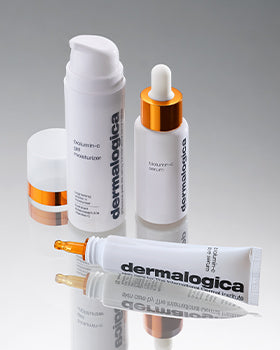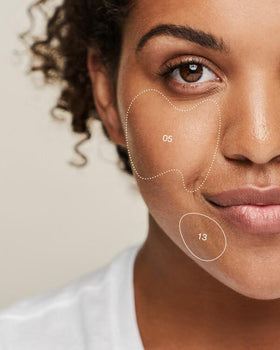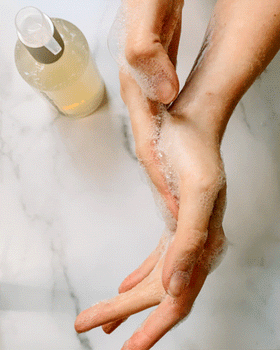The internet is an amazing place (Drag Race GIFs! memes! Chrissy Teigen!), but it’s also a Wild West for breakout-related information. Depending on what you read, you could be convinced that breakouts are caused by everything from too much Dairy Milk to simply wearing sunscreen. And while it is true that what may trigger pimples for one person could have little or no effect on someone else, there are some straight-up acne myths worth debunking. Before we get going, a disclaimer: If you’re in doubt about what’s causing your spots, or they’re adversely affecting your quality of life, see a healthcare professional.
Now, without further ado...6 untruths about blemishes to stop worrying about right now.
1: does chocolate cause breakouts?
Probably not. This is one of the most common acne myths out there, and one of the most persistent. The thing is, no one can quite agree on whether food plays a role when it comes to breakouts. Some experts believe dairy can be an issue where a dietary sensitivity is present (dairy being an ingredient in most chocolate). Still, many skin professionals don't think what you eat plays a role in the formation of pimples at all. (That said if you suspect you are intolerant or allergic to dairy you might like to speak to your health professional.)
Dairy isn’t the only food group with acne associations. Sugar and acne are often conflated - the idea being that sugar messes with insulin, triggering hormone-related breakouts in some. The problem is the evidence is mainly anecdotal. The main takeaway is that while diet-based treatments may improve spots for some, the American Academy of Dermatology doesn’t currently recommend diet changes as part of acne management due to lack of data. Can food and acne not be a myth anymore? Let’s quash this one.
2: does acne mean your skin is dirty?
Not so much. Pimples form when a sebaceous gland (or oil gland) becomes clogged with a cocktail of sebum and dead cells. While this could technically happen as a result of a grimy complexion, it’s not very likely. If you're reading this post, there's a fair chance you're interested enough in skincare to be washing your face regularly. Cleansing once in the morning and once at night to remove muck and makeup is plenty. Resist over-cleansing as this could strip the skin and lead to a compensatory overproduction of sebum.
3: should I treat all pimples the same way?
Yes and no. All pimples start out the same way (see above re: blocked sebaceous glands), but at some point, they progress into one of a few types. You’ll recognise whiteheads or pustules as standard pimples with a ‘head’, while cysts or ‘blind’ pimples happen deeper in the skin. This difference is important because not all acne will behave the same way. (Also, because squeezing a blind spot will make it last even longer!) For both types, our salicylic acid-rich Emergency Spot Fix can help to tackle inflammation and speed healing.
4: do sunscreens cause breakouts?
It's complicated. Most sunscreens are non-comedogenic however some mineral formulations can cause congestion if not adequately removed. (There's also the possibility of a sensitivity reaction to certain chemical UV filters, but thankfully this isn't common.) The main thing to know is that if you have acne-prone skin, you need to wear SPF, not least because UV can make breakouts worse. There are plenty of great options out there including our Oil Clearing Matte Moisturiser SPF 15 which helps to minimise shine while it protects.
5: is acne only normal for teenagers?
Acne is normal for everyone. In actuality, it’s thought between 40 and 55% of adults aged between 20 and 40 live with persistent acne. So while it is true that teenagers are the main demo dealing with breakouts (due to the wonderful cocktail of hormones that kicks off with adolescence), pimples aren’t their exclusive domain. Many things can trigger spots throughout our lifetimes, like stress, medications, diet, hormonal changes in pregnancy and menopause and even underlying conditions, including polycystic ovarian syndrome. Also? Genetics.
6: does sex and masturbation cause acne?
No. Fact: Sex and/or masturbation don't cause blemishes in and of themselves. But because these kinds of, ahem, physical activities result in sweat and friction, they can cause blocked pores which do lead to spots. The good news is there's an easy fix. Treat sex like you would a workout and shower off the bacteria, oils and sweat when you’re done. Oh and make sure to keep sheets and pillowcases clean, too.



